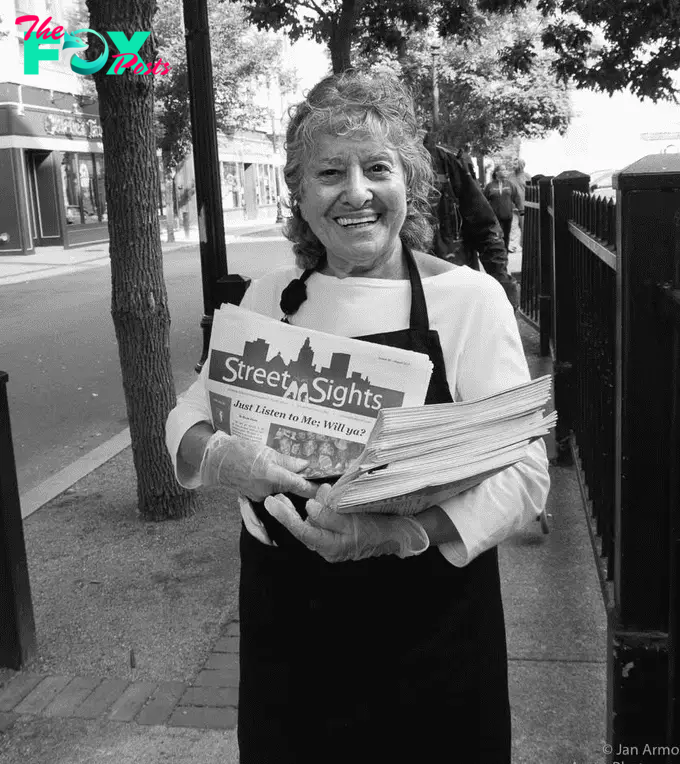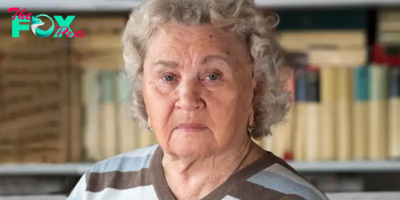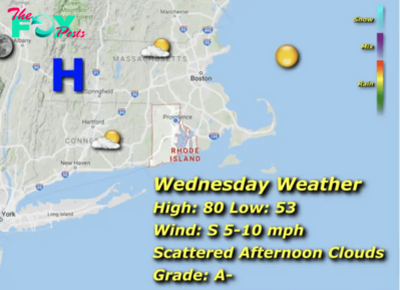Lifestyle
Homeless in RI: Mental health, a choice of words – Antonietta Kies, Janice Luongo, Street Sights
Written for, about, and by people who are unhoused or have been unhoused.
by Antonietta Kies, and Janice Luongo, Street Sights – special to RINewsToday
Rhode Island, Mental Health, and a Choice of Words
In 2021, the National Alliance on Mental Illness (NAMI) consolidated a fact sheet of statistics on the state of mental health in Rhode Island. Amongst other statistics, their data found that “178,000 Rhode Islanders (more than 7x the population of Newport) had a mental health condition.”[1] That number was 16.2% of the total population in 2021.
Compounding this was the finding that “More than half of people with a mental health condition in the U.S. did not receive any treatment in [2020-2021]”, a statistic which still holds true today. Of course, the pandemic only exacerbated the situation. The Office of The Health Insurance Commissioner (ohic.ri.gov) noted that a per capita mental health spending increased “70 percent for children and adolescents, and 61 percent for adults[2]” between 2018 and 2022 and was likely “amplified by the pandemic”.
How did we get here?
And what accounts for the discrepancy between people with a mental health condition and those who receive help? The Rhode Island Department of Behavioral Healthcare, Developmental Disabilities & Hospitals (bhddh.ri.gov) provides a timeline of developments in services in the state for over 100 years. Notably, in 1963, the Joint Commission on Accreditation of Healthcare Organizations (JCAHO) accredited both the General Hospital and State Hospital for Mental Disease (which merged to become the Rhode Island Medical Center in 1962). JCHAO’s roots date back to 1951 and it is “the largest accreditation commission in the United States.[3]” The accreditation indicated that the hospital upheld the highest standards of excellence in healthcare delivery, safety, and efficiency.
But dating all the way back to 1847, when Butler Hospital opened “one of the most progressive institutions in the nation for treatment of the mentally ill[4]“, efforts were already being made to provide care for the incurable insane [sic]. The treatment of chronic and acute care was organized into a single hospital in 1885, and in 1916, social workers were assigned to the State Hospital (Social Work only became an occupation in the US in 1900[5]!) Fast forwarding to after the JCHAO accreditation, a new state department, the “Department of Mental Health, Retardation, and Hospitals”, was created and now administered the Center General Hospital and Institute of Mental Health, in 1967. Already at this time, the language being used to describe the mentally ill was transitioning away from othering terms like “the incurable insane”.
Spread the word – to end the word day
From the 70s on, mental healthcare began to specialize in terms of types of mental health patients: a concept we are now used to, and the Division of Behavioral Healthcare was formed in 2000. Once again, in 2009, an effort was underway to modify the language used to discuss mental health conditions: March 3 was declared “Spread the word to end the word day,” when the word retardation began to be removed from the naming of departments and institutions, now referred to as “The R Word”. And finally through the 2010s, language and education were being designed to address addiction, a condition intimately tied to mental health. At the same time, efforts were underway to destigmatize mental illness.
As of 2023, Rhode Island proudly holds one of the best performing 988 lifelines in the nation since 988[6], a national suicide and crisis hotline supported by the National Suicide Hotline Designation Act of 2020[7], was launched. And today, Lifespan, Rhode Island’s largest hospital group, owns Rhode Island, Miriam, Newport, and Bradley Hospitals[8]: It offers a consolidated Lifespan Psychiatry and Behavior Health Access Center to navigate the outpatient mental health system offerings.
Despite this, the homeless population in Rhode Island and elsewhere is pervaded by unaddressed mental health needs. What is the reason for this? There are numerous contributing factors. Mental health needs are not the first, second, or third thing on an unhoused person’s mind. The first thing on their mind is immediate needs like clothes, food, and injury care. An unhoused person may have insufficient money to pay for mental health care, even if it is subsidized by programs like Medicaid (and most people who need mental health support do not realize it).
To sign up for Medicaid, one must have access to a smartphone or a computer – most likely a computer, given the complexity of health care signup forms. Filling these forms out can be a burden: people’s reading levels vary, and so do their languages. Once health insurance is established, one may need a car or funds for buses in order to get care. All of these obstacles make it harder for homeless people – whose mental health is suffering in disproportionately large numbers relative to the housed population – to get access to the care they need.
Just one more crisis?
The mental health landscape, homelessness, and housing here in Rhode Island are all undoubtedly in a state of crisis but words used repeatedly, no matter how accurate, seem to lose their meaning as we become desensitized to the issues. Linguist and activist Noam Chomsky puts it well: “One way of trying to undermine independent thought and creative approaches to the world is to simply destroy the way of talking about things.[9]” Even if we are not trying to “destroy”, we have found ourselves in a position where crisis is so overused that it causes readers to gloss over the subjects.
So how can we retain a great amount of attention on the issue of homelessness and mental health? Perhaps focusing on statistics always has the ability to grab people’s attention. And at Street Sights we believe that learning the stories of our unhoused neighbors will serve as an illuminating reminder of how relatable we are to one another. That unhoused people are not “others”: they are us.
One response we received from our last article was the important reminder that we must never give up on each other, or our unhoused family members. We will continue this conversation in our next article.

Street Sights can trace its early beginnings to 1999 when a Brown University student doing research on street newspapers, thought the Providence homeless community might be served by such much-needed information, as well as an opportunity for self-expression. It has been published for approximately 16 years, beginning in 2007, as the first magazine written by and for the homeless population. It began as a weekly single sheet of purposeful and inspirational information distributed at agencies and newsstands, in tents, backpacks and the pockets of individuals who are unhoused. It can be found in every community. In recent time it has become a digital format, accessible by anyone using a computer, or cell phone.
Our publication with RINewsToday is a way to reach more people – and more audiences – with vital messages from and on behalf of our brothers and sisters.
Street Sights serves as a forum for advocates, unhoused and formerly-unhoused, people, students, state officials, and the general public to share accurate and honest information about issues relating to homelessness.
Readers may leave a note for Street Sights, for Janice, below:
Or, write to us at [email protected] or [email protected]
[1] https://www.nami.org/wp-content/uploads/2023/07/RhodeIslandStateFactSheet.pdf
[2] https://ohic.ri.gov/sites/g/files/xkgbur736/files/2024-05/OHIC%20Cost%20Trends%20Report_20240513%20FINAL.pdf
[3] https://www.Healthcare-management-degree.net/faq/what-is-jcaho/
[4] https://bhddh.ri.gov/about-us/our-History
[5] https://online.regiscollege.edu/blog/History-of-social-work/
[6] https://bhddh.ri.gov/about-us/our-History
[7] https://www.fcc.gov/988-suicide-and-crisis-lifeline
[8] https://www.wpri.com/business-news/lifespan-hospital-group-to-be-renamed-brown-health-school-will-provide-150m/
[9] https://www.youtube.com/watch?v=-5O1jJCfLiM
___
-

 Lifestyle2h ago
Lifestyle2h agoHOT NEWS: KELCE NOT HAPPY- Travis Kelce vents his anger UP over Chiefs first loss, That makes me angry..cau
-

 Lifestyle2h ago
Lifestyle2h agoI Couldn’t Reach out to My Husband for Days – Then My Mother-in-Law Called Me & Revealed the Shocking Truth
-

 Lifestyle2h ago
Lifestyle2h agoMy Stepmom Made Me Sleep in a Shed and Gave My Room to Her Kids — My Mom Immediately Brought Her Back Down to Earth
-

 Lifestyle2h ago
Lifestyle2h agoWoman Comes to Meet Her Fiancé’s Parents and Sees Another Woman Posing as Her at the Dinner — Story of the Day
-

 Lifestyle3h ago
Lifestyle3h agoBollywood hit 'Biwi No. 1' set to re-release in theatres | The Express Tribune
-

 Lifestyle3h ago
Lifestyle3h agoThe arena roars again | The Express Tribune
-

 Lifestyle7h ago
Lifestyle7h agoFans react after single Kim Kardashian hangs out with $30K Tesla robot: Low-maintenance boyfriend.cau
-

 Lifestyle7h ago
Lifestyle7h agoElon Musk: 53-Year-Old Welcomes Twelfth Member to His Growing Family and Everyone Says So.cau


























